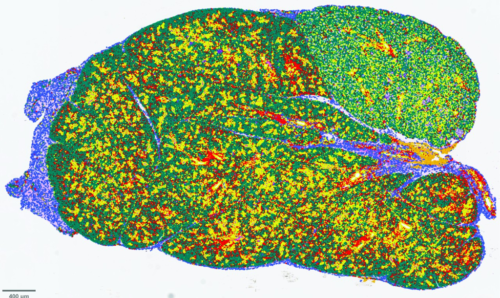2024-12-18 カリフォルニア大学サンディエゴ校 (UCSD)
<関連情報>
- https://today.ucsd.edu/story/improvement-initiative-increased-well-being-and-reduced-inefficiencies-for-surgical-residents
- https://jamanetwork.com/journals/jamasurgery/article-abstract/2827882
リーン生産方式を活用して労働時間制限の遵守を改善する Leveraging Lean Methodology to Improve Compliance With Work-Hour Restrictions
J. Jeffery Reeves, MD; Nicole Goldhaber, MD; Hannah Hollandsworth, MD; et al
JAMA Surgery Published:December 18, 2024
DOI:10.1001/jamasurg.2024.5518
Key Points
Question Can Lean methodology be successfully applied to general surgery residency programs to improve compliance with Accreditation Council for Graduate Medical Education work-hour restrictions?
Findings In this quality improvement study including the web-based survey responses of 29 residents, a hybrid Lean process improvement workshop was used to identify systemic inefficiencies and develop targeted interventions aimed at reducing work hours. The mean number of residents per block who logged more than 80 hours per week decreased from 4.4 (12.4%) to 0.8 (2.2%), for a difference of 10.2%.
Meaning Results suggest through deliberate and structured process improvement, surgical residency programs can foster improved work environments for trainees.
Abstract
Importance Since work-hour restrictions were instituted in 2003, sustainably complying with duty-hour regulations remains a challenge for general surgery residency programs across the nation.
Objective To determine whether industry-based process improvement techniques could be leveraged to increase compliance with work-hour restrictions within a general surgery residency.
Design, Setting, and Participants This quality improvement project using Lean methodology was conducted from October to November of the 2021 to 2022 academic year. The setting was a university-based general surgery residency program in southern California with rotations across 5 regional hospitals. The program trains 7 categorical general surgery residents per postgraduate year (PGY) and offers an optional 1 to 3 years for research and career development.
Interventions Programmatic structures were examined, current and target states were analyzed, opportunities for improvement were identified, root-cause analyses were conducted, and targeted interventions were developed.
Main Outcomes and Measures Resident time logs and annual Accreditation Council for Graduate Medical Education resident and faculty surveys were reviewed from academic years 2019/2020 to 2022/2023. Attending faculty were surveyed on resident preparedness using a 5-point Likert scale. Differences between means and proportions were calculated with corresponding 95% CIs.
Results The web-based survey responses of 29 residents (residents per PGY, 7 [PGY1], 14 [PGY2/3], 8 [PGY4/5]; 17 female [54.7%]) were included in this study. Root causes included maxed baseline schedules, late in shift work, culture, service variability, clinical volume, and inefficient workflows. Fifteen multifactorial interventions impacting call and weekend scheduling, work practices and efficiencies, intern and service orientations, and faculty and cultural expectations were implemented. The mean number of residents per block who logged more than 80 hours per week decreased by 3.6 violations per block (95% CI, 2.98-4.22), from 4.4 (12.4%) to 0.8 (2.2%) for a difference of 10.2% (95% CI, 8.4%-16.2%). On the annual resident survey, perceived compliance with 80 hours was 72%, 83%, 83%, and 88%, respectively, over the following study periods: 2019 to 2020, 2020 to 2021, 2021 to 2022, and 2022 to 2023. Faculty perception of resident preparedness for the case increased from a mean (SD) of 2.6 (0.8) to 3.0 (0.5), with a difference of 0.47 (95% CI, -0.52 to 0.68). There were no statistically significant differences in technical skill, clinical judgment, sense of responsibility, efficiency, or sense of well-being.
Conclusions and Relevance Results of this quality improvement study suggest that through Lean methodology, surgical residency programs can improve working environments. This novel approach can increase compliance with resident work hours by engaging front line trainees in the process.



